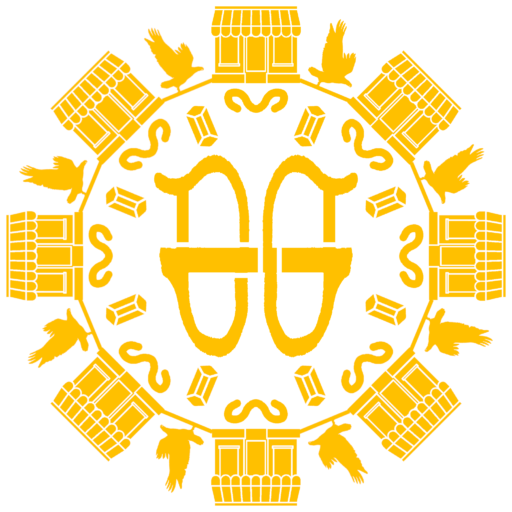I actually cannot find the definitions even in Wiktionary. Though I do think that for some of the archaic words on this list which are still used today, it is hard to pinpoint the contexts in which they are used.
Since the literature itself was usually translated in the 19th century, then the words that were relevant to that time period would be used as the best possible cognates to the original translations assuming the works were not in English. So anyone who is looking into the body of English literature would be hard-pressed to continue studying it, since he would have difficulty reading out-of-date language. This list would hopefully alleviate that struggle and ease the studying of English literature.
Eke
In Modern English, we would use that word as a verb to refer to \”supplementation,\” such as in the phrase \”to eke out a living.\” However, in Middle English, particularly in the \”Canterbury Tales\” it was used to mean \”also\” or \”in addition.\”
Humor
Of course, the word nowadays refers to a noun that elicits laughter, but hundreds of years ago, humor referred to a person\’s temperament. Determining it involved a now-debunked scientific method of classifying anyone based on four humors: 1. if a person was easily angered; 2. if a person was cheerful by nature; 3. if a person was melancholic or easily given to sadness; 4. if a person was relaxed or easy-going.
Industry
Not only do we think of the word industry, as referring to capitalism pertaining to the citizens\’ relationship with the cityscape like in the word \”industrialization,\” but also when referring to a niche market, such as the film industry. However the word industry was also used to refer to the ethic of hard work. Benjamin Franklin was the most notable advocate of this concept in his Autobiography.
In sooth
We do not hear this phrase anymore, but we do know what a soothsayer is, which is someone who foretells a prophecy; so what would the sooth imply? That this sayer has knowledge of something. That is why \”In sooth\” is the archaic translation for today\’s phrase \”In reality\” or \”In truth.\” Just like a lot of the phrases on this list, this phrase can be found in William Shakespeare\’s plays.
Increase
This word, used in the modern times as a verb meaning \”to expand,\” was actually used as a noun to refer to a piece of land, more specifically in the religious context. This is most definitely the case in Jonathan Edwards \”Sinners in the Hands of an Angry God,\” when he mentions that:
\”…the earth don’t willingly yield her increase to satisfy your lusts.\”
Race
Not usually used to refer to one\’s own skin color or geographical origin, rather to refer to one\’s own family or lineage. This can be found in Edgar Allan Poe\’s The Fall of the House of Usher in which the narrator relates that:
\”I had learned, too, the very remarkable fact, that the stem of the Usher race, all time-honored as it was, had put forth, at no period, any enduring branch.\”
That word can also be seen in the \”Eddas\” which are a collection of lays detailing tales in Norse mythology, specifically with the context of race referring to variations of world-origin, such as the races of the Alfar, Jotunn, Dwarves, and Men.
Repast
This refers to food eaten at a meal, specifically within the context of a feast gathering. This was seen in The Mabinogion, whenever one of King Arthur\’s knights ate a meal.
Sblood!/Zoonds!
It is a bowdlerization of the phrases \”God\’s blood\” and \”God\’s wounds,\” which is meant to be a profane expletive in Shakespeare\’s time.
Soft!
Used in Shakespeare\’s plays, used as an interjection.
Wont
This adjective means \”to be accustomed to,\” however it was never placed in front of a noun to modify it, rather the modification occurred when it referred to a person\’s state of mind, which then follows with a verb, as though saying that the person has a habit of initiating the said verb.
This was primarily used in this context in William Shakespeare\’s Richard III.
\”Nor cheer of mind that I was wont to have.\”
Wroth
Today, the word is spelled wrath, and it refers to a noun not an adjective. In classical literature, the word wroth meant \”a wrathful state of mind.\”
